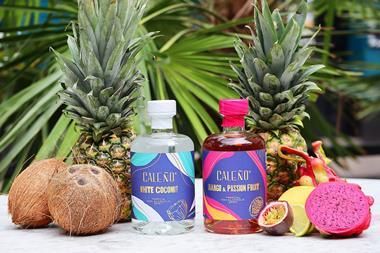
Over the past year, I have watched companies cut budgets, shrink teams and focus only on core products and priorities. One consequence of this has gone largely unnoticed: the steady decline of innovation.
Without new ideas, new categories don’t emerge. Or at least if they do, they take much longer to come to fruition. Categories that have brought energy and growth to grocery in recent years include non-alcoholic drinks, mochi, matcha and even humble categories such as beans and toilet roll. What these categories have in common is that they were all established or reinvented, and more importantly driven forward by challenger brands that saw something the bigger players did not.
Many of these brands needed belief and backing to realise their ambitions. That’s why I found it disheartening to see Diageo shut down its accelerator programme, Distill Ventures, earlier this year. Across 12 years, it backed more than 35 businesses and invested over £240m into entrepreneurs with bold ideas. Its closure sends a clear message that corporate appetite for early-stage innovation is at risk.
And Diageo is not alone. Other global players such as Unilever, Nestlé, and Mondelez are also pulling back from NPD. According to Mintel and Circana, the number of genuine new launches has fallen sharply, along with investments in entrepreneurs. Instead, we are seeing more line extensions, reformulations and safe bets dressed up as something different. It is a shift from bold innovation to comfortable and safe.
I know how hard it is to launch something truly different. When I first tested the concept for Caleño with bartenders back in 2017, the idea of a non-alcoholic spirit was met with a lot of scepticism. But our willingness to explore, test and take risks helped a brand-new category emerge. That kind of freedom rarely exists inside large corporations.
Too often, big business innovation means endless stages, approvals and compromises. By the time a product reaches the shelf, the original spark may have been lost. Meanwhile, entrepreneurs with unusual ideas are told they are too niche or too early, until one day they are leading a market everyone wants to be in. With the more recent pullbacks on investment, I fear innovation will continue to stall.
If we care about the future of this industry, we must protect and nurture innovation at all costs.



















No comments yet